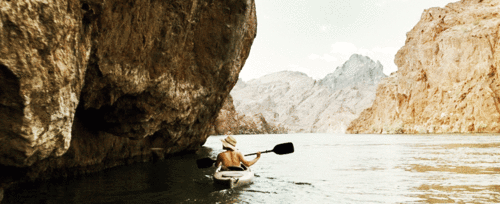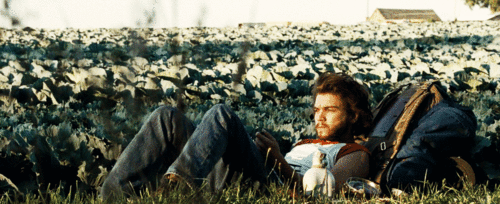Into the Wild by Jon Krakauer is, among many things, the retelling and examination of the life of Chris McCandless. McCandless is viewed by some as the embodiment of youthful invincibility meeting its seemingly impossible demise, as the product of the negative feelings he harbors for his parents, or as an inspiring, yet naive vagabond. In my view he is all three.
The story begins at the end. Chris McCandless has become something more pure in his mind, something finally free of the constraints he felt his family and society placed upon him—he has become Alexander Supertramp. Alexander Supertramp, after hitchiking hundreds of miles, finally reaches the wilderness he has been lusting for all this time. After declining any support from the man who drove him he heads off into the unknown with minimal supplies. With the knowledge he has accumulated from a few books and a few years on the road, he hoped to survive the unforgiving Alaskan winter.
As any sane person could guess he ends up dead by his own unpreparedness. The author posits McCandless died of starvation induced by the poison he ingested after misidentifying a plant. While Chris had a handbook for identifying edible and non-edible plants, he did not have experience. He also did not come prepared with the supplies or knowledge he should have to survive in such harsh conditions. One of the most important things he left out of his pack was a map of the area. It is said that Chris wanted to experience nature in its purest form, to eschew the trappings of modern life and live off the land. In my opinion, he was just trying to shake the guilt of his own perceived privilege.
McCandless grew up in a nice suburban neighborhood. Son to a remarried father with previous kids, he was all around a pretty average guy. He worked hard, got good grades, and was accepted into Emory University where his escapes from reality became more frequent. He would go on long road trips in the summer time and one summer he went to the West coast where he discovered the truth: his father had been lying to him about his previous marriage. Chris had always been at odds with his father, but this discovery was the tipping point. He hated materialism and inequalities so he went to the inner city to feed the poor and talk with them. He hated that his father had a successful company and once worked for NASA so he studied the inequalities present in turmoil rich regions.
Due to the hatred of the ideals his father embodied Chris set off to become the exact opposite. Instead of using his station in life to help those less fortunate than him, instead of using the gift of his education and his father’s status to help right the inequalities he saw in the world, he set off on a narcissistic adventure to “find himself.” Nonetheless, his travels are inspiring. Reading about his close calls, the friends he meets, and all of the beautiful scenery he experiences, one cannot help but want to go on their own adventure.
So many people live within unhappy circumstances and yet will not take the initiative to change their situation because they are conditioned to a life of security, conformity, and conservatism, all of which may appear to give one peace of mind, but in reality nothing is more damaging to the adventurous spirit within a man than a secure future. The very basic core of a man’s living spirit is his passion for adventure.
However, Chris’ youthful idealism is far from reality. He refuses to insure his car as an act of rebellion, yet for a short while he complies with his supervisor at McDonald’s. His car is flooded so he burns his money as a symbolic break from materialism, yet he works many jobs during his travels. Wishing to live purely off the land he goes unprepared into the wild, yet had he a map he would have been able to see just how close he really was to civilization. Just before dying Alexander Supertramp scrawls his epitaph under his real name — Christopher McCandless — on the inside of the bus he was using for shelter. Weeks later he is found by the infrequent travelers of the Stampede Trail.
If Into The Wild teaches us anything its that of realism in a world of idealism, one must see the forest for the tress to maintain a realistic manner of living. McCandless did everything in his power to escape the hate he had for his station in life. He eschewed the trappings of materialism and cultural bias, yet he perished in a relic of mankind, miles away from civilization.
McCandless conveniently overlooked the fact that [Jack] London himself had spent just a single winter in the North and that he’d died by his own hand on his California estate at the age of forty, a fatuous drunk, obese and pathetic, maintaining a sedentary existence that bore scant resemblance to the ideals he espoused in print.
Read Next: The Hands of Man

